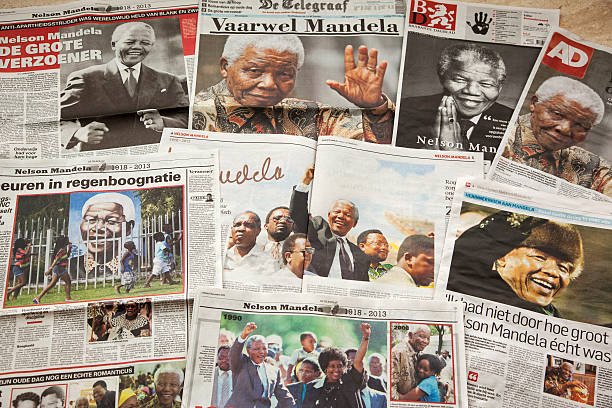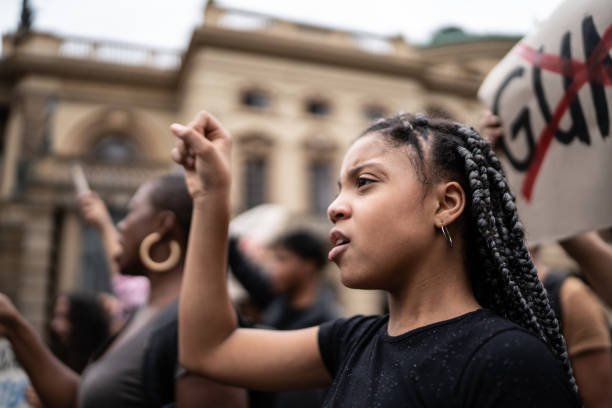Violation of Human Rights in South Africa: A Dark Decade (1950-1960): The decade of 1950-1960 in South Africa was marked by rampant human rights violations, as the apartheid regime systematically oppressed the majority of the population. This period saw the strengthening of the apartheid system, with the implementation of numerous laws that institutionalized racial segregation and social, economic, and political discrimination. This article provides an overview of the human rights violations that occurred during this dark decade in South African history, which would ultimately lead to widespread resistance and ultimately the dismantling of apartheid.
Violation of Human Rights in South Africa: A Dark Decade (1950-1960)
The Apartheid Regime: A System of Institutionalized Discrimination
Apartheid, an Afrikaans term meaning “apartness,” was a political and social system that promoted racial segregation and discrimination in South Africa. The apartheid regime, led by the National Party, came to power in 1948 and imposed a series of laws that restricted the rights and freedoms of non-white citizens. These laws were designed to maintain the dominance of the white minority and systematically oppress the black majority and other non-white ethnic groups.
Key Legislation Enforcing Apartheid
During the 1950s, the apartheid government enacted several laws that further entrenched racial segregation and discrimination. Some of the most significant laws were:
- The Population Registration Act (1950): This law required all South Africans to be classified by race, with categories such as white, black, colored, and Indian. This classification determined where people could live, work, and access public services
- The Group Areas Act (1950): This legislation enforced the spatial separation of different racial groups by establishing designated areas for each race. Non-white South Africans were forcibly removed from their homes and relocated to segregated townships, often with inadequate living conditions.
- The Bantu Education Act (1953): This act sought to limit the educational opportunities of black South Africans, forcing them into an inferior education system designed to prepare them for menial labor. The law effectively entrenched social and economic inequality between racial groups.
- The Pass Laws Act (1952): This legislation required black South Africans to carry passbooks, which controlled their movement within the country. Failure to produce a passbook on demand could result in arrest, detention, or deportation to a designated homeland.
Human Rights Violations during the 1950s
The apartheid regime’s policies led to widespread human rights violations, including:
- Forced removals and displacement: Millions of non-white South Africans were forcibly removed from their homes and relocated to segregated areas, resulting in the destruction of communities and families.
- Inhumane living conditions: The segregated townships where non-white South Africans were relocated often had poor infrastructure, overcrowding, and inadequate access to basic services such as healthcare, education, and sanitation.
- Restricted freedom of movement: The pass laws severely limited the freedom of movement for black South Africans, leading to a constant state of surveillance and control.
- Limited political representation: Non-white South Africans were denied the right to vote or hold political office
- Police brutality and torture: Law enforcement agencies often used excessive force and engaged in violent tactics to enforce apartheid policies, with many individuals detained without trial, tortured, or subjected to extrajudicial killings.
- Censorship and suppression of dissent: The apartheid government censored the media, literature, and art, aiming to suppress any opposition or criticism of the regime. Activists, trade unions, and political organizations that opposed apartheid faced harassment, arrest, or banning.
Resistance and the Road to Liberation
Despite the oppressive environment, resistance to apartheid grew steadily throughout the 1950s. The African National Congress (ANC), the South African Communist Party (SACP), and other organizations continued to fight for the end of apartheid and the establishment of a non-racial, democratic society. Key events during this period included:
- The Defiance Campaign (1952): Organized by the ANC and other anti-apartheid groups, this campaign saw thousands of protesters engage in acts of civil disobedience, such as entering “whites-only” facilities or refusing to carry passbooks.
- The Freedom Charter (1955): Adopted by the Congress of the People, a gathering of anti-apartheid organizations, the Freedom Charter outlined the vision for a future South Africa based on equality, justice, and human rights.
- The Sharpeville Massacre (1960): In March 1960, a peaceful protest against the pass laws turned deadly when police opened fire on demonstrators, killing 69 people and wounding over 180. This event marked a turning point in the struggle against apartheid, leading to increased international pressure and the radicalization of the resistance movement.
- The Banning of the ANC and the PAC (1960): In response to the Sharpeville Massacre and growing unrest, the South African government banned both the ANC and the Pan Africanist Congress (PAC), forcing these organizations to operate underground or in exile. Many leaders, including Nelson Mandela, were arrested or forced to flee the country.
- The Formation of Umkhonto we Sizwe (1961): With non-violent protest seemingly ineffective, the ANC and SACP formed a military wing, Umkhonto we Sizwe (Spear of the Nation), to engage in armed struggle against the apartheid regime.
The decade of 1950-1960 in South Africa was characterized by the systematic violation of human rights as the apartheid regime implemented oppressive policies to maintain white minority rule. The widespread suffering and indignity faced by the non-white population during this period galvanized resistance movements and brought global attention





